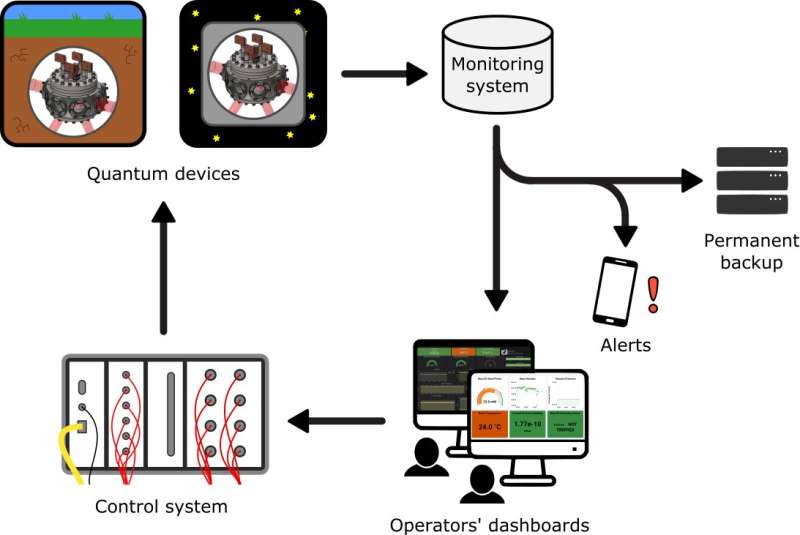New Research Could Make Quantum Tech Viable in Outer Space
Aiming to micro-correct for environmental disturbances in quantum computing designs.
Physicists with the University of Sussex have successfully developed a remote monitoring and control system blueprint for quantum devices and experiments. The new research pairs human intervention, data collection, and AI systems to detect and correct environmental fluctuations in vulnerable quantum computers (and their processing units, the qubits). The team hopes their work will eventually allow for the development of quantum computing solutions that operate across vast swathes of distance and in otherwise unworkable environments, such as space, or beside your desktop PC from the future.
The quantum computing environment is booming, with multiple research breakthroughs occurring on a seemingly daily basis. Looking at this trend, the researchers believe quantum computing is reaching a level of maturity that could allow for adoption by non-specialist users -- or that could extend its deployments towards otherwise non-ideal but attractive scenarios, such as space. And it was derived from the scientists' experience at setting up work-from-home solutions so that research within the University's ultracold quantum laboratories never stopped.
"Whilst we have been able to exploit this system for controlling our experiments for homeworking, even more significantly, this technology provides a blueprint for monitoring the environment and carrying out research and operating technology in inaccessible, non-constant and unpredictable environments such as space, underground or below sea level," said Dr. Thomas Barrett, Research Fellow in the group and lead author of the paper. "That's where it gets really exciting and could provide far reaching impact."

The research provides control and key experimental parameters, such as vacuum chamber pressure, laser beam power, or resistances of important conductors; all of which are required hardware in quantum computing environments. It also showcases how otherwise detrimental environmental factors can be mitigated by deploying automated control sequences paired with evolutionary algorithms and machine learning protocols. These solutions constantly monitor and micro-correct for the environment surrounding the quantum system. Crucially, according to Dr. Thomas Barrett, "the system makes use of some technology that is already being used in many other sectors such as finance, farming and manufacturing and uniquely applies it to quantum devices."
"(...) this advancement has far-reaching implications that could pave the way to new smart technologies utilizing AI/human collaboration," added Professor Peter Krüger, Principal Investigator. "An algorithm can be written to source information from a mixture of human input, sensors and AI. As quantum technology become more complex, for example with more sophisticated sensors and quantum computers, these types of monitoring systems will become crucial."
There are many ways in which this research could impact future quantum designs across disciplines such as research, education, and the industrial and consumer markets. Quantum computing typically requires very controlled environments, as they are susceptible to computing errors or system decoherence caused by environmental noise such as thermal, acoustic, radioactive, and magnetic fields. However, data on these environmental disturbances is usually collected post-facto and aid in retrospectively determining the underlying cause. But if systems can be buffered against predicted environmental disturbances and made to adapt to unforeseen or developing environments automatically, its mainstream usage could be brought closer to reality.
"There are countless application possibilities," finished Professor Peter Krüger. "In the future you could find these systems monitoring quantum devices in places such as spacecraft, inside glaciers or closer to home in electric vehicles or hospitals."
Get Tom's Hardware's best news and in-depth reviews, straight to your inbox.
How soon mainstream quantum computing becomes within our reach depends on many variables. The eventual products and form factors will depend on where the research leads quantum computing, and which designs ultimately prove the winners, either for reasons of cost, practicality, or scaling. Qubits, as we've seen, can take many forms with differentiated strengths and weaknesses between them. This will ultimately impact how the technology is packaged into spacecraft, glaciers, or other exotic locations. However, irrespective of how the technology ultimately materializes on our more mundane PC desks, we'll take one here at Tom's Hardware, please.

Francisco Pires is a freelance news writer for Tom's Hardware with a soft side for quantum computing.